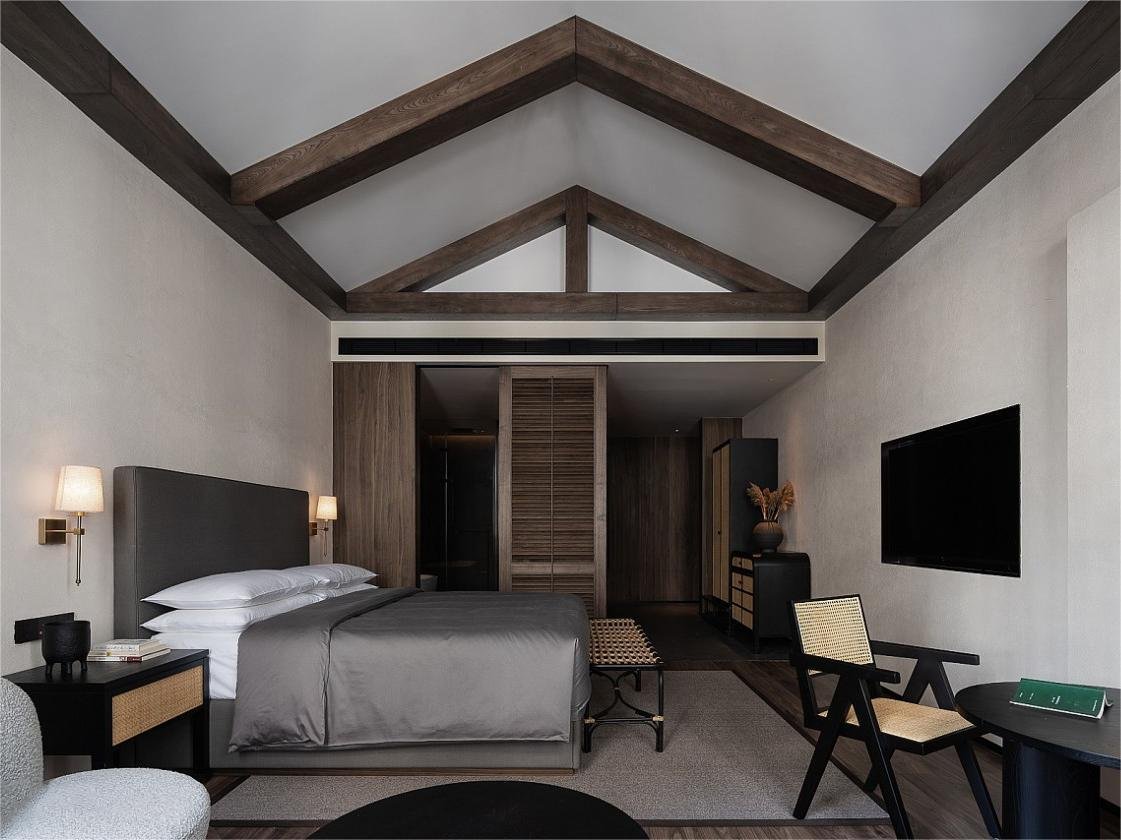Introduction
In recent years, residential furniture has rapidly evolved to meet the changing demands of modern living. With homeowners placing greater emphasis on sustainability, technology integration, and personalized comfort, the residential furniture market is undergoing a significant transformation. As we move into 2025, sustainable materials and smart furniture solutions are no longer luxury options — they are essential features for future-ready homes.
In this article, we’ll explore how sustainable design and smart technology are reshaping residential furniture trends in 2025, offering valuable insights for project procurement teams, property developers, and homeowner representatives.
1. The Rise of Sustainable Residential Furniture
Eco-friendly design is no longer just a trend — it’s a necessity. With stricter environmental regulations and growing consumer awareness, residential furniture manufacturers are prioritizing sustainable materials and processes.
Key Features of Sustainable Furniture in 2025:
Use of Recycled and Renewable Materials: Expect to see more furniture made from reclaimed wood, bamboo, rattan, and recycled metals.
Non-toxic Finishes: Eco-conscious homeowners demand low-VOC (Volatile Organic Compounds) paints and natural oils for safer indoor air quality.
Eco-friendly Upholstery: Organic cotton, hemp, and vegan leather are replacing traditional, chemically treated fabrics.
Durable, Long-Lasting Designs: Longevity is a core value, with modular furniture systems designed for easy repairs and reconfiguration.
Popular Example: Scandinavian-inspired designs remain popular for their minimalist, fungsional, and eco-friendly aesthetics.
2. Smart Furniture for Modern Living
As smart home technology becomes mainstream, residential furniture is evolving to integrate intelligent features that enhance daily life.
Key Innovations in Smart Residential Furniture:
Wireless Charging Stations: Integrated into nightstands, meja, and coffee tables.
Smart Lighting Controls: LED headboards and display cabinets with adjustable brightness via mobile apps or voice control.
Multi-functional Furniture: Modular sofas with built-in speakers, recliners with massage and heating functions, and adjustable workstations for hybrid work lifestyles.
Health Monitoring Features: Smart mattresses with sleep tracking, temperature control, and posture correction sensors.
Popular Example: Smart coffee tables featuring refrigerated drawers, Bluetooth speakers, and USB ports.
3. Blending Nature and Technology in Furniture Design
2025’s residential furniture trends focus on seamlessly blending nature-inspired materials with advanced technology. This biophilic-meets-digital approach creates inviting, tranquil, yet functional spaces.
Notable Design Elements:
- Natural wood finishes combined with wireless charging pads.
- Upholstered seating with built-in speakers and ambient lighting.
- Bathroom vanities with anti-fog LED mirrors and smart storage compartments.
Why It Matters for Procurement Teams:
Smart and sustainable furniture can improve property value, reduce long-term maintenance costs, and appeal to eco-conscious buyers or tenants in residential projects.
4. Customization and Personalization
Homeowners are seeking furniture solutions tailored to their unique preferences, lifestyles, and room layouts. Customizable options are becoming a key selling point for residential furniture manufacturers.
Popular Customization Options:
- Choice of materials, warna, and upholstery.
- Modular systems that can expand, contract, or reconfigure based on needs.
- Embedded smart modules selected by the buyer — like charging pads or Bluetooth speakers.
How It Benefits Project Owners:
Flexible, personalized furniture packages allow property developers and procurement agents to offer differentiated, value-added services to clients.
5. Future-proofing Residential Projects
Procurement teams and property developers increasingly look for furniture that aligns with long-term trends in energy efficiency, smart integration, and eco-friendliness.
Recommended Procurement Checklist for 2025:
- Choose vendors offering certified sustainable materials (FSC, GREENGUARD, or equivalent).
- Prioritize modular, multi-functional, and repairable designs.
- Select smart-integrated furniture options compatible with major smart home platforms.
- Work with ProBuild which have manufacturers experienced in residential project furnishing for consistent quality and on-time delivery.
Kesimpulan
2025 is a transformative year for residential furniture, where sustainability and smart technology are defining the future of home living spaces. From eco-friendly materials to intelligent, health-enhancing features, furniture procurement is becoming a strategic element in modern residential projects.
By choosing future-ready, customizable, and sustainable furniture solutions, procurement managers and property developers can meet evolving market expectations and add long-term value to their projects.
Looking for professional residential furniture solutions for your upcoming projects?
👉 Contact us now for a tailored furniture package that blends sustainability, smart functionality, and timeless design.






